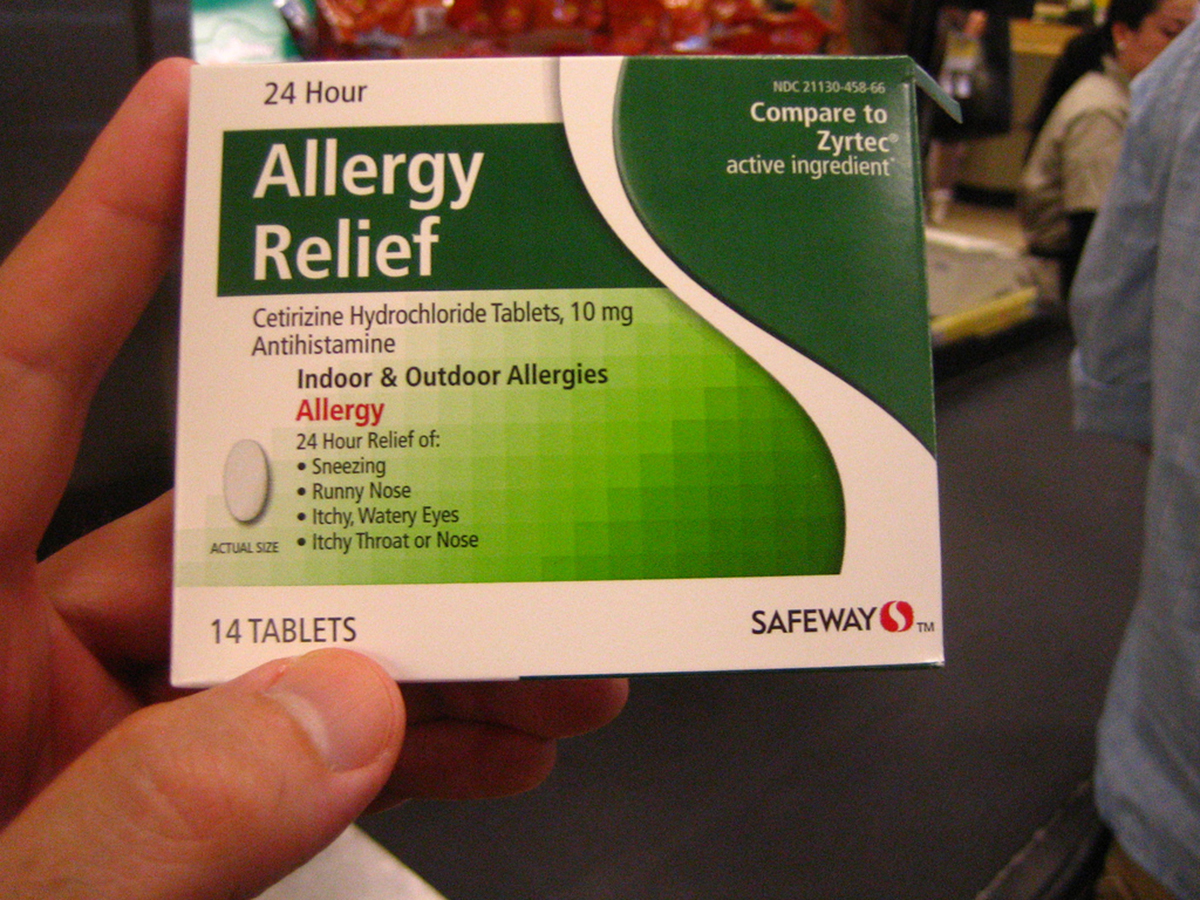Table of Contents
Preventative Measures
Pollen counts in your area can be looked up on the internet and are sometimes even broadcast on local radio stations. The Food and Drug Administration reminds us that pollen levels reach a peak in the morning during ragweed pollen season (late summer and early fall) and in the evening during grass pollen season (spring and summer). Windy days with lots of sunshine may seem ideal for a visit to the park, but they are the worst for allergy sufferers. Take these things into account and adjust your child's life accordingly wherever possible.

Anti-Histamines
Allergic reactions trigger the release of chemicals called histamines in the body, and anti-histamines, the most common form of allergy medication, block this action. Anti-histamines are available over the counter and are the first line of allergy treatment. They can come as tablets, capsules, nasal sprays, eye drops, and syrups and are sometimes combined with nasal decongestants as well. While some OTC anti-histamines are cleared for use in kids as young as six months, the FDA reminds you to always read your package insert thoroughly.
A general tip every pharmacist and physician will share with you is to start anti-histamine use before the commencement of the allergy season, in order to provide optimal symptom relief. In addition, do consult your child's pediatrician about the time of day during which you should offer your child their anti-histamine, even if you are using an over the counter medication. Note that some anti-histamines cause drowsiness, which can sometimes be severe.
Other Anti-Allergy Medications
In addition to using anti-histamines, you may also want to discuss over the counter allergy barrier nasal barrier sprays and powders with your pharmacist. Such medications, which may contain cellulose and peppermint, serve to provide a physical barrier between the allergens entering your child's nose and their mucus membranes. They are approved for use in children and have clinically been proven to be effective in some people.
Non-evidence based homeopathic medications are also available. At SteadyHealth, we can't recommend unproven and disproven treatments, and I'll add that I have no idea whether placebos would work for allergies at all, but users do report success with some homeopathic tablets for seasonal allergies. These tablets, in accordance with homeopathic principles, are taken very frequently. They cause no side effects.
READ Are Parents Starving Their Children Over Allergy Fears?
Allergy Shots
What if over the counter anti-histamines, prescription anti-histamines, nasal barrier sprays and alternative medications don't prevent your child from suffering from severe allergy symptoms? Then, it may be time to look into so-called allergy shots or allergy vaccines. As with traditional vaccines, these shots — prescribed by an allergist — introduce minute amounts of the allergen into your child's body. You will typically remain in the doctor's office for a while, so that any severe reactions to the shots can be countered with strong anti-histamines. Such shots involve being at the doctor very often, though the frequency at which they are given is gradually reduced until only a maintenance dose is needed.
- Photo courtesy of reader of the pack via Flickr: www.flickr.com/photos/youngandwithit/2798823194
- Photo courtesy of reader of the pack via Flickr: www.flickr.com/photos/youngandwithit/2798823194
- Photo courtesy of rick via Flickr: www.flickr.com/photos/spine/2453335769


Your thoughts on this